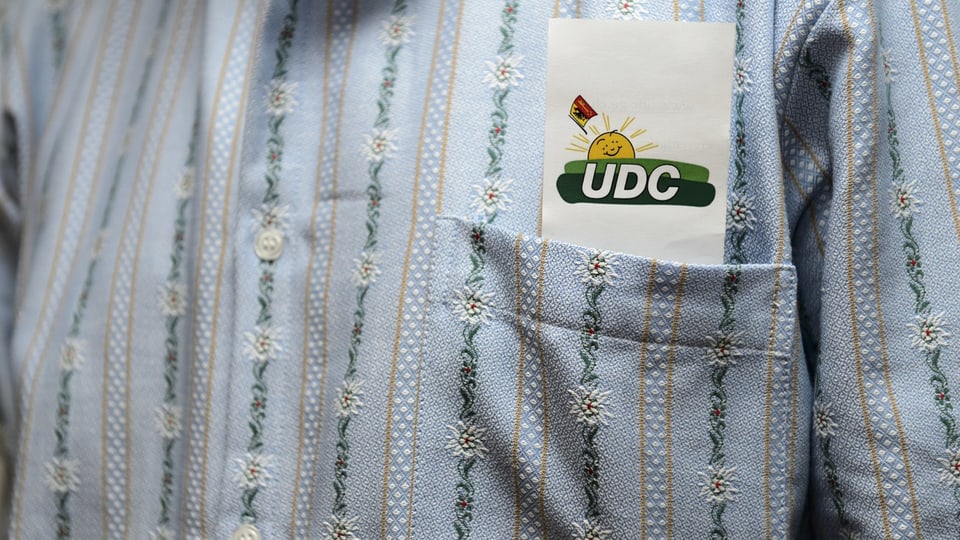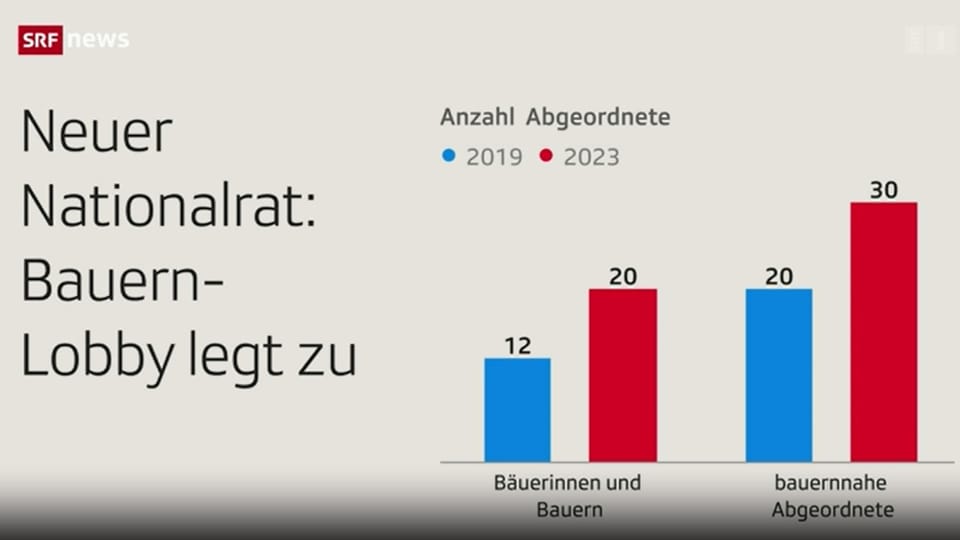Four years ago, there were twelve representatives of farmers in the National Council, but in the new legislature there are twenty. For National Councilors close to farmers, including agronomists, the number rose from 20 to 30. In total, the farmers’ lobby now brings together 50 stakeholders in the large chamber – a quarter of all seats.
Legend:
SRF
Last year, Swiss farmers received around 2.8 billion francs in direct payments. Due to the strengthening farmers’ lobby in parliament, these are unlikely to decrease in the coming years, estimates Adrian Vatter, professor of political science at the University of Bern.
More farmers in Bern equals more subsidies?
“This is of course a good sign from the farmers’ perspective,” says Vatter. The farmers could try to find majorities – for increased subsidies and support for their agricultural policy, for example.
As far as the increased greening of agriculture is concerned, I would put a question mark on that.
Politically, farmers have a lot of hay on the same stage in politics. Vatter says: “The protection of our own agriculture will undoubtedly be strengthened.” But: “As far as the increased greening of agriculture is concerned, I would put a question mark on that. As is well known, this is not at the top of the SVP’s agenda.” And a lot of farmers were elected to the SVP in particular, the political scientist continued.

Legend:
The SVP is close to the farmers. But there is not always agreement within the party on agricultural issues.
(KEYSTONE/Martial Trezzini)
But even within the former farmers’ party there is not always agreement on agriculture. Because the SVP is also a business party, as Vatter confirms. «If we look at the questions of state subsidies and the role of the state, on the one hand we have the traditional SVP farmer representatives and, on the other hand, strongly economically liberal forces within the SVP. The latter have no interest in the state paying as many subsidies as possible.”
